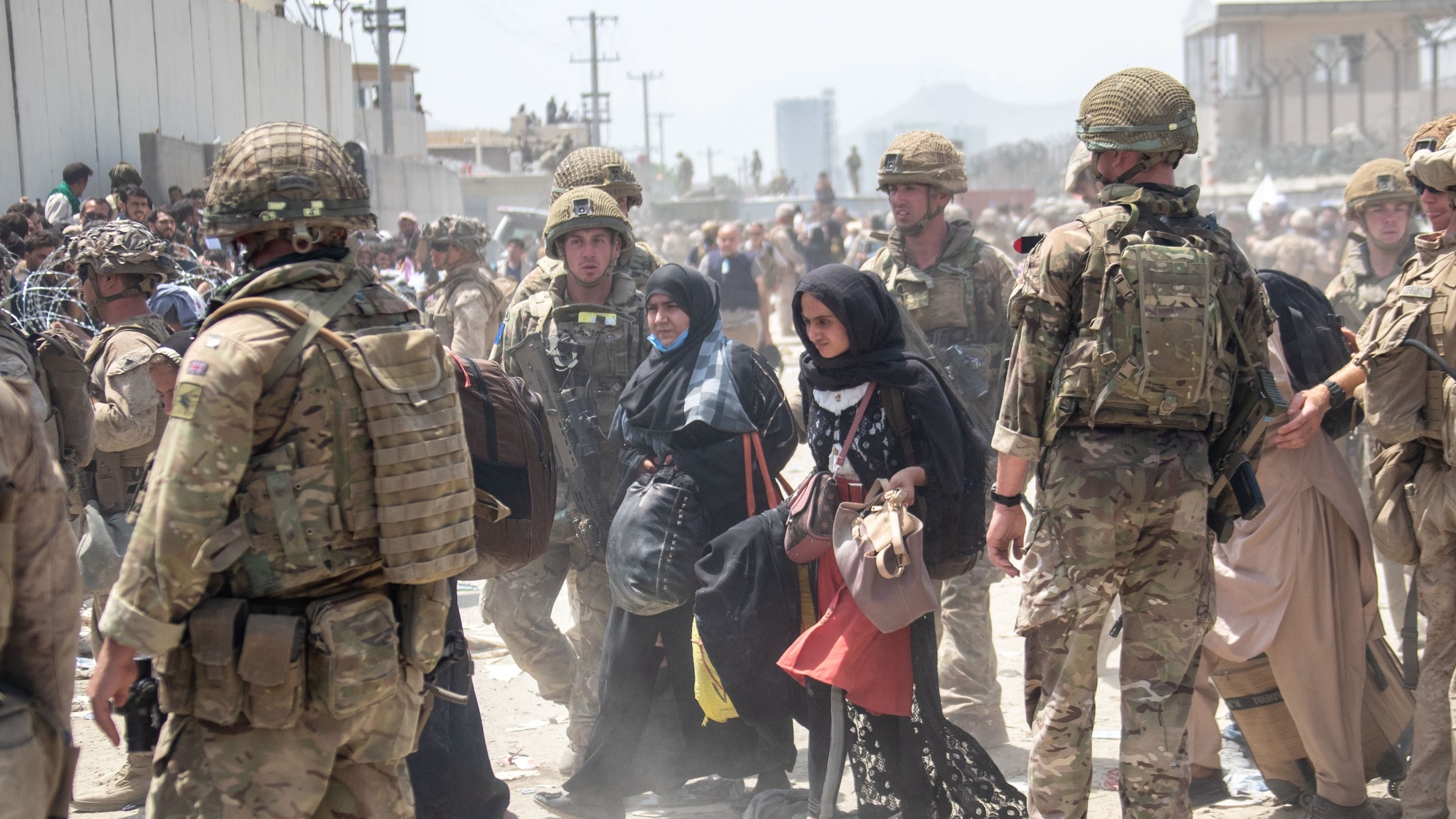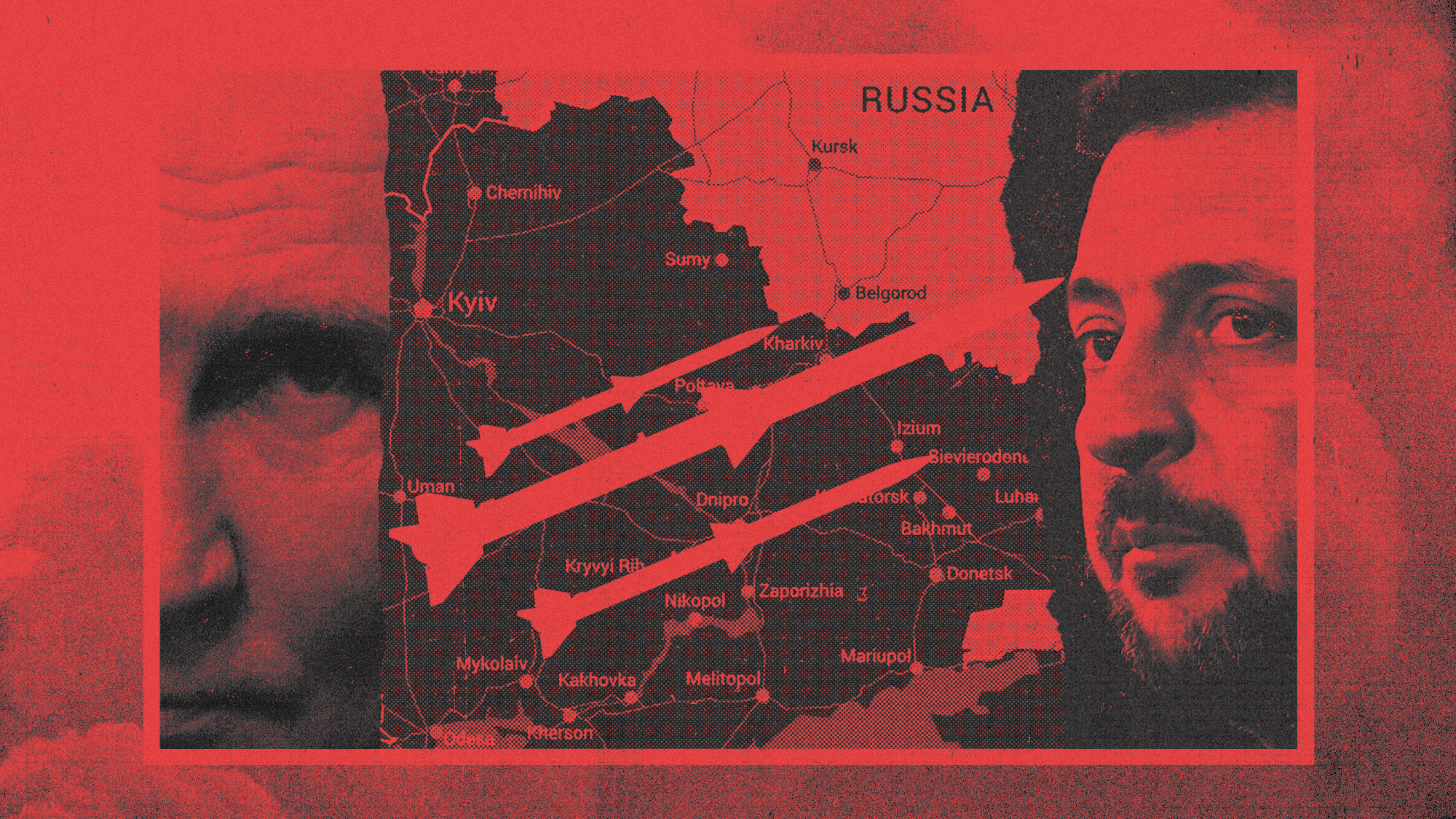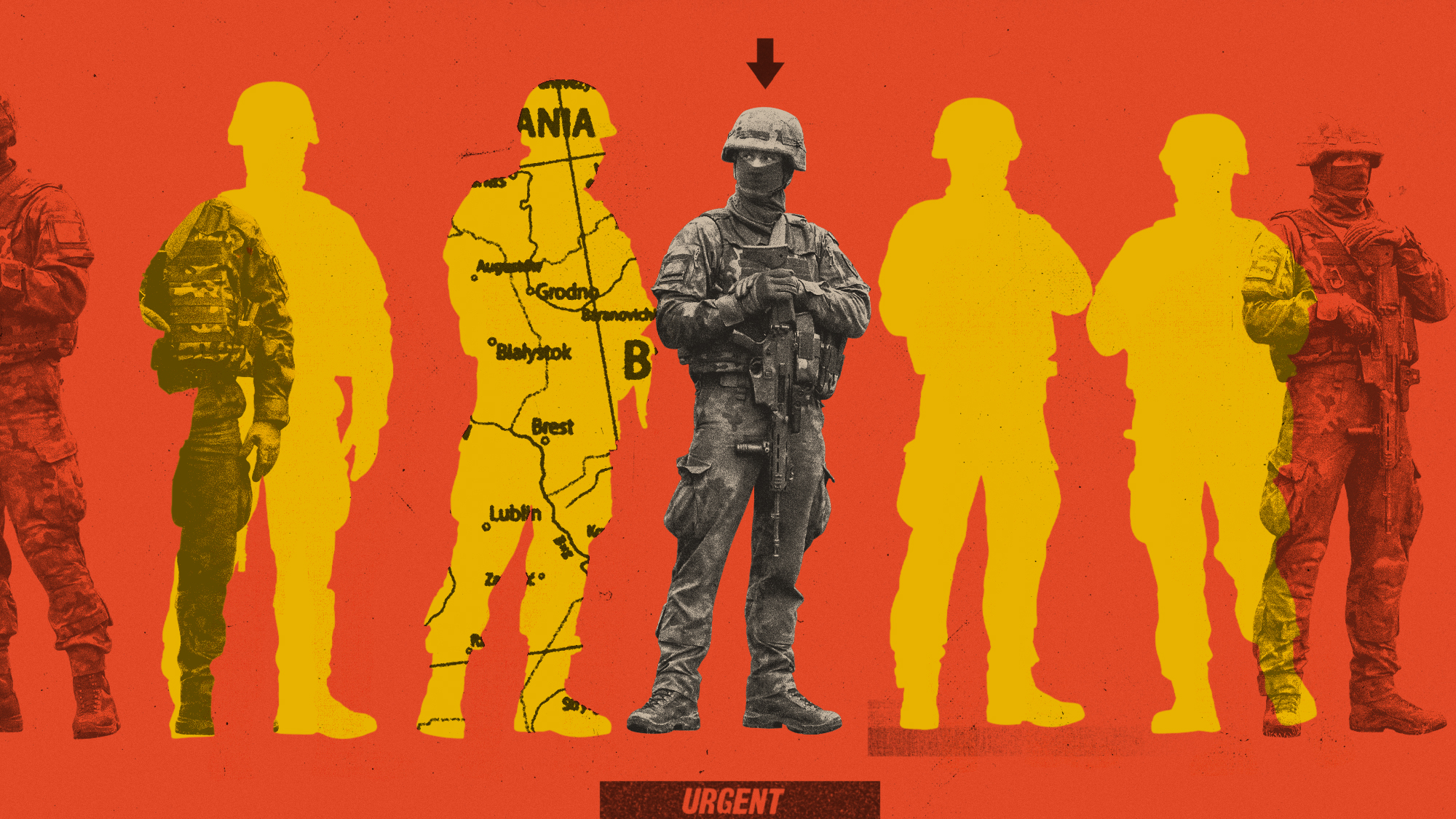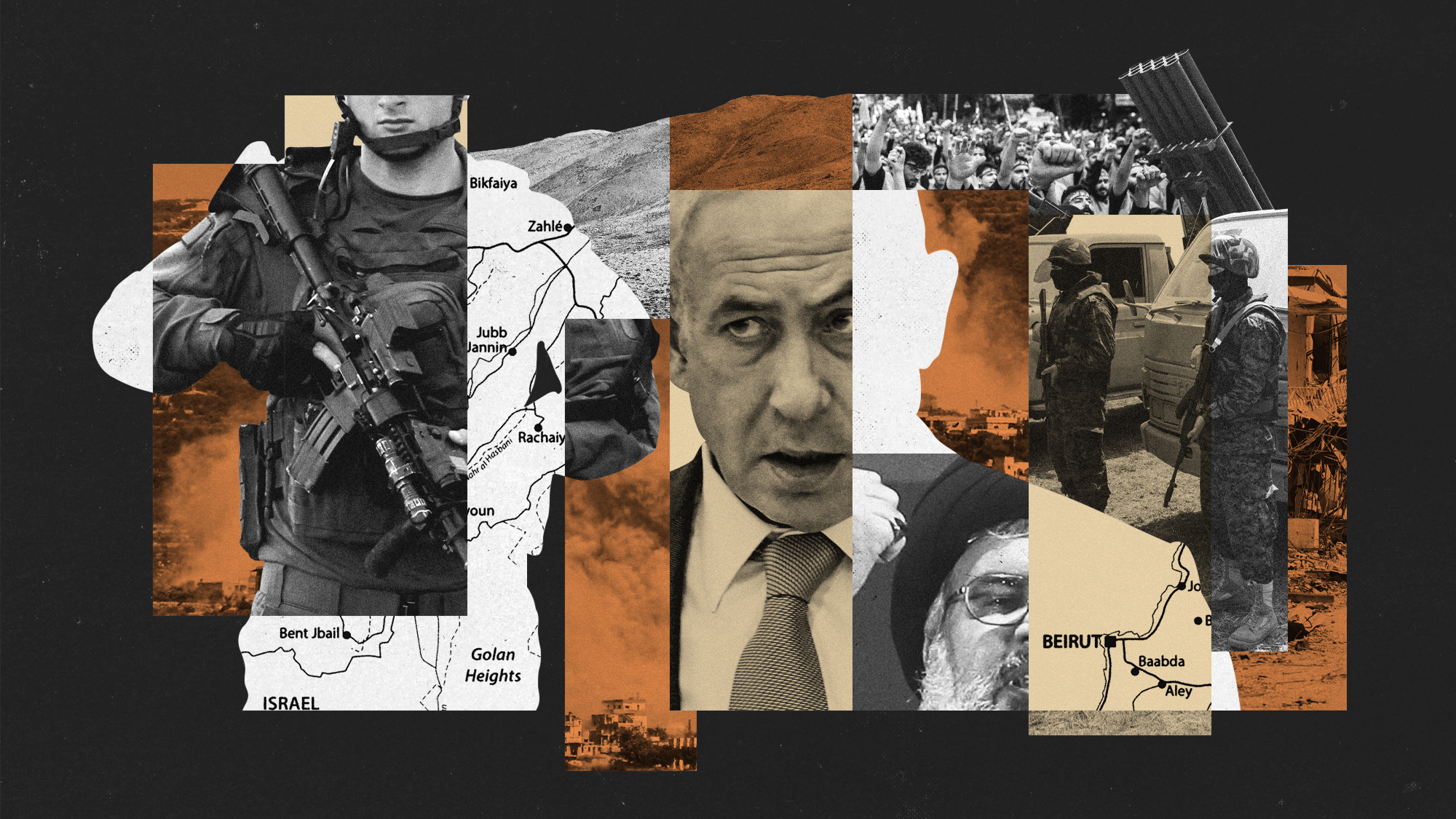What next for Afghanistan after Joe Biden rejects evacuation extension?
UK rushing to airlift more than 4,000 people out of the country

A free daily email with the biggest news stories of the day – and the best features from TheWeek.com
You are now subscribed
Your newsletter sign-up was successful
The UK’s evacuation flights out of Kabul may have to stop this week after Joe Biden decided against extending the deadline for Western forces to leave Afghanistan.
Defence sources told The Guardian that the flights may stop in the next “24 to 36 hours”, a timeline that would result in thousands of Afghans being left in the country as the Taliban moves to ban citizens from travelling to Hamid Karzai International Airport.
The UK is “scrambling to airlift more than 4,000 UK nationals and Afghan citizens” out of Kabul, The Times said, with Foreign Secretary Dominic Raab telling Sky News that the government “will use every last remaining hour and day to get everyone we can back”.
The Week
Escape your echo chamber. Get the facts behind the news, plus analysis from multiple perspectives.

Sign up for The Week's Free Newsletters
From our morning news briefing to a weekly Good News Newsletter, get the best of The Week delivered directly to your inbox.
From our morning news briefing to a weekly Good News Newsletter, get the best of The Week delivered directly to your inbox.
Diplomatic crisis
Biden confirmed last night that he was not planning to extend his August 31 deadline for the US withdrawal despite lobbying from Boris Johnson and other European leaders at a virtual G7 summit yesterday morning.
The president said discussions with G7 leaders were “productive”, telling reporters: “There was strong agreement among the leaders both about the evacuation mission under way as well as the need to coordinate our approach to Afghanistan as we move forward.
“First, on evacuation, we agreed we will continue our close cooperation to get people out as efficiently and safely as possible. We are currently on a pace to finish by 31 August, the sooner we can finish the better.
A free daily email with the biggest news stories of the day – and the best features from TheWeek.com
“Each day of operations brings added risk to our troops, but the completion by 31 August depends upon the Taliban continuing to cooperate, allow access to the airport for those who we are transporting now, and no disruption to our operations.
“Every day we are on the ground is another day we know that Isis-K is seeking to target the airport and attack both US and allied forces and innocent civilians.”
His decision not to extend the tight deadline for evacuation has triggered suggestions by Conservative backbenchers that the “special relationship” is over and that US-UK relations are “about to enter their lowest point since Suez”, The Guardian said.
The government is now “attempting to evacuate 1,250 British citizens and other people from recognised ���safe’ countries”, The Times added, as well as “a further 2,500 Afghans who have supported British forces over the past 20 years, including interpreters”.
It had been hoped that the UK would be able to “evacuate other Afghan citizens, including politicians, civil servants, judges and those who have helped with humanitarian efforts”. However, a government source told the paper that the 31 August cutoff meant that those people would be “unlikely to make it out”.
Speaking to MSNBC, Karen Pierce, the British ambassador to the US, yesterday said: “In the immediate term, in the next few days we’ll be making sure every minute counts to get out our own nationals, those Afghans who’ve worked for us, and those Afghans and others who are most at risk.”
Travel ban
A Taliban spokesperson yesterday said that the insurgents are “not allowing the evacuation of Afghans any more” amid reports that door-to-door manhunts for individuals that worked with Nato forces or the previous Afghan government have begun.
Spokesperson Zabihullah Mujahid told a press conference that “the road which goes to the airport is blocked”, adding that “Afghans cannot take that road to go to the airport, but foreign nationals are allowed to take that road to the airport”.
He continued that “we are not happy with it either”, suggesting that Afghans with specialist skills “should not leave this country” and “should work in their own specialist areas”.
Asked about the travel ban, White House Press Secretary Jen Psaki told reporters that the threat should not impact Afghans that had been prioritised for evacuation by the US, stating: “That is not how you should read it. Our expectation, which we have also conveyed to the Taliban, is that they should be able to get to the airport.”
Many experts “remain dubious” about the Taliban’s assurances that there will be “no revenge” aimed at Afghans that worked alongside the Nato forces amid “reports of human rights abuses and concerns that the situation will deteriorate further once most of the international community leaves the country”, CNN said.
A report by the RHIPTO Norwegian Center for Global Analyses, which provides intelligence to the UN, revealed that the militants have been going door to door to find targets and threaten their family members amid the ongoing evacuation.
Christian Nellemann, who heads the group behind the report, told the BBC that “there are a high number of individuals that are currently being targeted by the Taliban and the threat is crystal clear”.
Warning that anyone on the Taliban’s blacklist remains in severe danger, and that mass executions could follow efforts to round up the insurgent’s targets, he added: “It is in writing that, unless they give themselves in, the Taliban will arrest and prosecute, interrogate and punish family members on behalf of those individuals.”
-
 What to know before filing your own taxes for the first time
What to know before filing your own taxes for the first timethe explainer Tackle this financial milestone with confidence
-
 The biggest box office flops of the 21st century
The biggest box office flops of the 21st centuryin depth Unnecessary remakes and turgid, expensive CGI-fests highlight this list of these most notorious box-office losers
-
 The 10 most infamous abductions in modern history
The 10 most infamous abductions in modern historyin depth The taking of Savannah Guthrie’s mother, Nancy, is the latest in a long string of high-profile kidnappings
-
 Operation Rubific: the government's secret Afghan relocation scheme
Operation Rubific: the government's secret Afghan relocation schemeThe Explainer Massive data leak a 'national embarrassment' that has ended up costing taxpayer billions
-
 Israel's wars: is an end in sight – or is this just the beginning?
Israel's wars: is an end in sight – or is this just the beginning?Today's Big Question Lack of wider strategic vision points to 'sustained low-intensity war' on multiple fronts
-
 Middle East crisis: is there really a diplomatic path forward?
Middle East crisis: is there really a diplomatic path forward?Today's Big Question Recent escalation between Israel and Hezbollah might have dented US influence in the conflict
-
 Missile escalation: will long-range rockets make a difference to Ukraine?
Missile escalation: will long-range rockets make a difference to Ukraine?Today's Big Question Kyiv is hoping for permission to use US missiles to strike deep into Russian territory
-
 Who would fight Europe's war against Russia?
Who would fight Europe's war against Russia?Today's Big Question Western armies are struggling to recruit and retain soldiers amid fears Moscow's war in Ukraine may spread across Europe
-
 Are Ukraine's F-16 fighter jets too little too late?
Are Ukraine's F-16 fighter jets too little too late?Today's Big Question US-made aircraft are 'significant improvement' on Soviet-era weaponry but long delay and lack of trained pilots could undo advantage against Russia
-
 Hamas and Hezbollah strikes: what does it mean for Israel?
Hamas and Hezbollah strikes: what does it mean for Israel?Today's Big Question Iran vows revenge for death of Hamas political leader in Tehran, hours after Israeli strike kills top Hezbollah member in Beirut
-
 What would war between Israel and Hezbollah look like?
What would war between Israel and Hezbollah look like?Today's Big Question A conflict that neither side wants could cause devastation and spark direct US-Iran confrontation